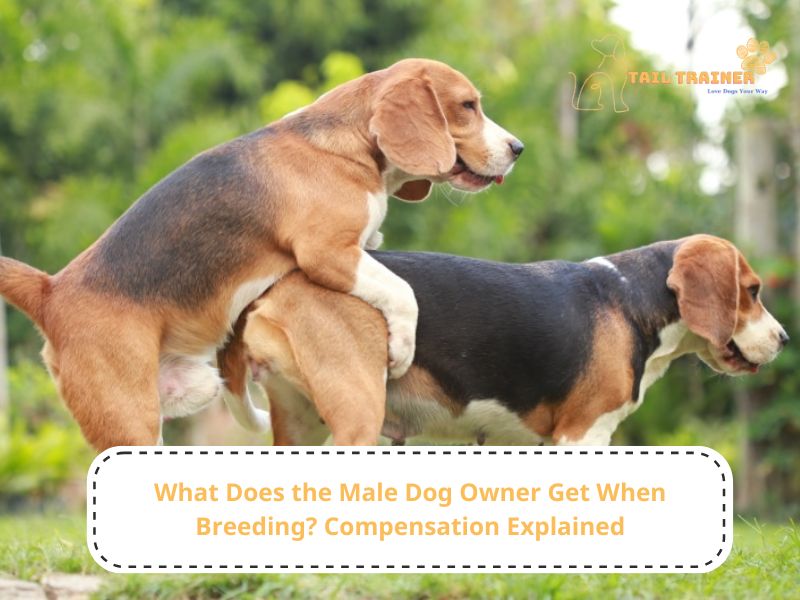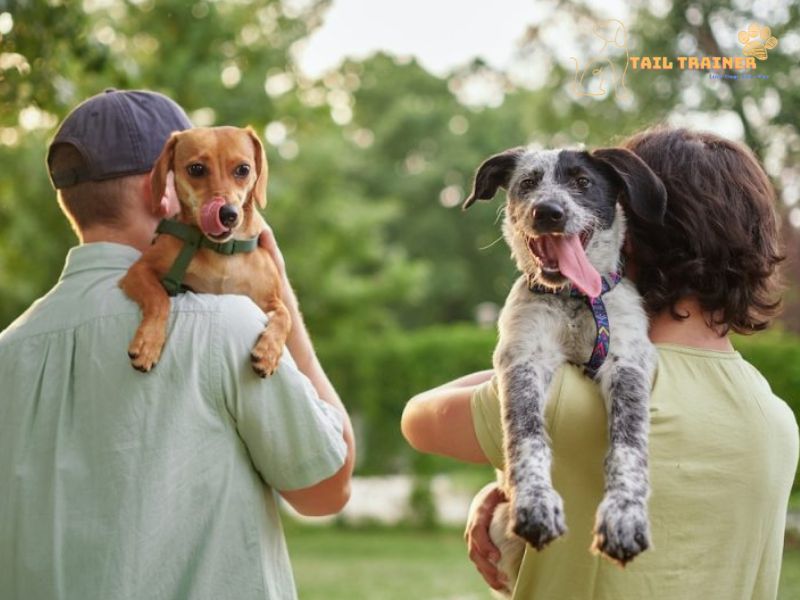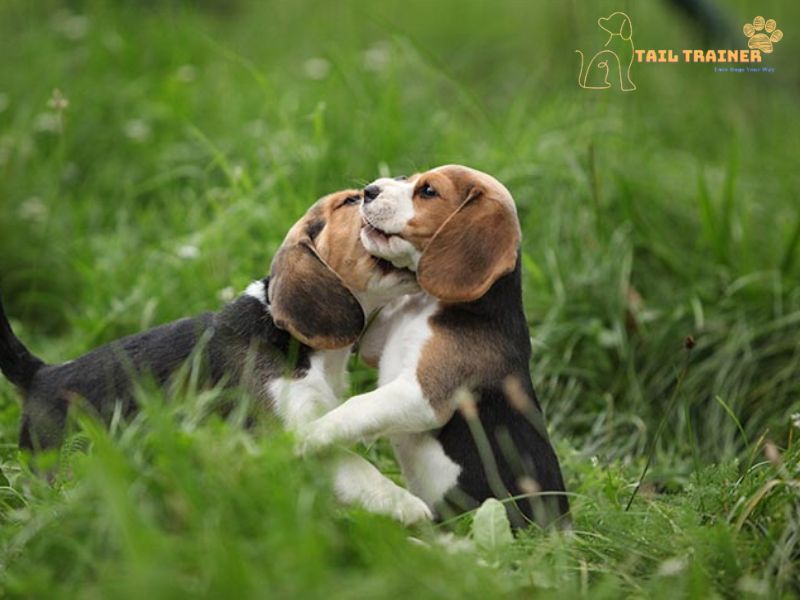Wondering what does the male dog owner get when breeding? Male dog owners can receive stud fees, puppies, or other breeding rights based on agreements made during the breeding process. Let’s dive deeper into what compensation male dog owners typically receive.
Key Takeaways
What does the male dog owner get when breeding?
The male dog owner often receives a stud fee, a puppy from the litter, or other breeding rights depending on the agreement made with the female owner. These compensations vary based on the stud dog’s pedigree, health certifications, and the breeding contract.
Understanding Compensation for Male Dog Owners in Breeding

When it comes to breeding, both male and female dog owners have specific roles and benefits. In most breeding agreements, the male dog owner is compensated for allowing their stud dog to mate with a female. Let’s explore what the male dog owner can typically expect.
The Role of the Male Dog Owner in Breeding
The stud owner plays a crucial role in maintaining the genetic quality of a breed. For many breeders, using a male with strong genetic traits and good health is essential for producing high-quality puppies.
- Why Stud Dogs Are Important: Stud dogs are chosen based on their lineage, health certifications, and specific traits like temperament, coat quality, and size. Breeders often seek out the best stud to ensure desirable characteristics in the offspring.
- Agreement Terms: These agreements often involve specific compensations, ensuring that the stud owner is rewarded for their dog’s contribution.
What the Male Dog Owner Receives from Breeding

Stud Fee: The Most Common Compensation
The stud fee is the standard form of compensation for the male dog owner. This fee is typically a predetermined amount agreed upon by both parties before the breeding.
- Why It’s Standard: The stud fee provides direct financial compensation to the male owner for the use of their stud dog. It is straightforward and allows for a clear agreement.
- How It Works: The stud fee is usually paid once the breeding is confirmed successful, meaning the female dog is pregnant. However, some agreements may stipulate partial payment upfront and the remainder upon confirmation of pregnancy.
- Amount: The amount varies based on factors like the stud dog’s pedigree, health, and breeding history. High-demand breeds or dogs with champions in their lineage often command higher fees.
Puppy from the Litter: An Alternative Option
In some cases, the male dog owner may opt to receive a puppy from the litter instead of a stud fee. This arrangement is often preferred by breeders looking to expand their bloodlines.
- Why Choose a Puppy: Receiving a puppy allows the stud owner to retain a part of the stud’s lineage, which can be beneficial for maintaining specific genetic traits or expanding breeding programs.
- How It Works: Both owners agree on this arrangement before the breeding. The male dog owner usually has the first or second pick of the litter, depending on the terms of the agreement.
Breeding Rights and Exclusive Agreements
In addition to a stud fee or puppy, the male dog owner may also receive other breeding rights as part of the agreement. This can include exclusive rights to specific bloodlines or the ability to use certain traits in future breedings.
- Why It Matters: These agreements ensure long-term benefits, particularly for breeders focusing on specific genetic traits or characteristics.
- How It Works: The breeding rights might be exclusive to one owner or shared among multiple parties, depending on the contract.
Important Factors Affecting Compensation

The type and amount of compensation the male dog owner receives can vary based on several factors, including the stud dog’s pedigree, health status, and demand for the breed.
Stud Dog Pedigree
A stud dog with an impressive pedigree often commands higher compensation, whether it be a larger stud fee or more favorable terms for receiving a puppy.
- Why Pedigree Is Key: Dogs with champion bloodlines or prestigious ancestry are more valuable in breeding programs. This value is reflected in the stud fee or breeding agreements.
- Examples: Breeds like German Shepherds, Golden Retrievers, and French Bulldogs are often bred with pedigree considerations in mind, making them popular choices in breeding contracts.
Health Certifications and Testing
Health is a crucial factor in dog breeding, especially for stud dogs. Health certifications and clear testing results can significantly influence what the male dog owner receives.
- Health Testing: Standard health tests include OFA (Orthopedic Foundation for Animals) for hip and elbow dysplasia, as well as CERF (Canine Eye Registration Foundation) for eye health.
- Why It Matters: Health certifications not only add value to the stud dog but also increase the likelihood of successful and healthy litters, making the stud dog more desirable for breeding.
Demand for the Breed
The popularity and demand for certain breeds also affect the compensation that male dog owners receive. High-demand breeds often result in higher stud fees or more flexible breeding rights.
- Popular Breeds: Breeds like Labrador Retrievers, Poodles, and French Bulldogs are highly sought after, resulting in more favorable breeding agreements.
- Less Common Breeds: While compensation might be lower for less popular breeds, unique genetic traits or rare lineage can still command competitive stud fees.
The Importance of a Clear Breeding Contract
A well-defined breeding contract ensures that both the male dog owner and the female dog owner understand their rights, responsibilities, and expected outcomes. It also minimizes the risk of disputes during or after the breeding process.
What to Include in a Breeding Contract
A solid breeding contract should cover all potential scenarios, ensuring that both parties are protected and clear about their obligations.
- Stud Fee Terms: The contract should specify the amount, payment schedule, and conditions for the stud fee.
- Puppy Selection: If a puppy is part of the compensation, the contract should detail how the male owner will select the puppy and when.
- Health Testing Requirements: The contract should outline any required health tests for the stud dog and the female before and after breeding.
Drafting a Fair Breeding Contract
Working with an experienced legal professional in animal breeding ensures that the contract is fair and protects both parties.
- Why It’s Necessary: Breeding contracts provide a clear framework for compensation, protecting the interests of the male dog owner and ensuring transparency in the breeding process.
Frequently Asked Questions (FAQs)
What does the male dog owner typically receive in breeding?
The male dog owner usually receives a stud fee, a puppy, or other breeding rights, depending on the agreement established before breeding.
Can a male dog owner receive more than one puppy as compensation?
Yes, it’s possible if the breeding agreement specifies that the male owner will receive multiple puppies. This is more common in cases where the stud dog’s traits are highly desirable.
How are stud fees determined?
Stud fees are based on factors such as the stud dog’s pedigree, health certifications, and breed demand. Dogs with champion bloodlines generally command higher fees.
Is health testing mandatory for stud dogs?
While not always mandatory, health testing is highly recommended. It ensures the stud dog is healthy, increasing the value and desirability for breeding.
What are exclusive breeding rights?
Exclusive breeding rights allow the male dog owner to retain certain privileges, such as using the stud dog exclusively for their breeding program or controlling future matings.
Explore more about responsible breeding and dog training at Tail Trainer for comprehensive insights into best practices and effective breeding strategies!
